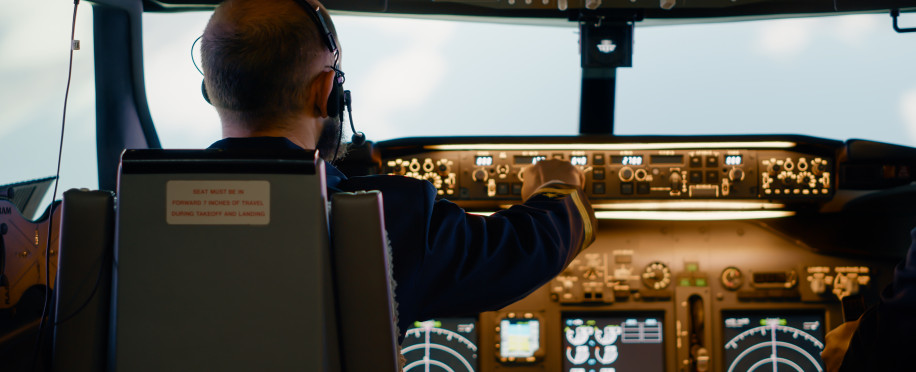Copyright © 2026 lmitac.com All Rights Reserved. Contact - Terms and Conditions - Privacy Policy - Quality Policy - Become an instructor - Vacancies - Sitemap
London Maritime Academy is a trade name for London Premier Groupversion: 2.9.0
London Maritime Academy is a trade name for London Premier Group

Posted on : 4/18/2024, 11:46:28 PM
Last Update : 4/18/2024, 11:46:28 PM
You may be a little confused when you hear about a career as a maritime pilot, as you may not understand what could bring a pilot to the maritime industry.
However, we can tell you that the maritime pilot is a vital working crew member, directly impacting the safety and efficiency of marine operations in different local and international waters as he/she is the master operator of the total boat movement.
Thus, if you are interested in learning more about the maritime pilot career, required skills, pilot training, and hidden pilotage career possibilities, continue reading with us to discover all that you are looking for about maritime pilots!
Maritime pilot, harbour pilot, ship pilot, marine pilot, or pilot boat are all names of the same experts. The naval port professional is highly trained and specialises in navigating hulking ships, fishing boats, and other types through ports, harbours, and critical waterways.
More than that, maritime pilots are responsible for the movement approaches of all ships and vessels and their safety, including their cargo tonnage and passengers, entering and exiting the port, and docking without any fatal body injury while achieving entire association with other maritime pilots.
Most harbour pilots usually function from the coast, unlike ship captains.
Typically, based on his/her knowledge and data, the mariner pilot also offers marine services for moving ships and vessels outside the ports in challenging waterways, like narrow channels, shallow waters, or heavy traffic where navigation may be dangerous due to various factors.
Thus, we can understand the essential role of maritime training in modern seafaring. It helps the maritime pilot do his/her task efficiently and contributes to the smooth functioning of global maritime trade.
So, suppose you are interested in joining this fantastic maritime career. In that case, you should consider getting these certificates and training to become a professional maritime pilot and enjoy a good job opportunity in a good port.
You must go through an extensive professional academic program founded by professionals in a well-known university in nautical science or marine engineering to learn all the basics of harbour piloting for ships and vessels.
Taking professional maritime courses London will help you go the extra mile and learn everything you need about navigation procedures, chart reading, and marine pilotage practice.
Many professional maritime pilots guide junior maritime pilots in getting boarding captain training to better understand the ship or boat's working technique in different conditions.

As with any other career, there are specific skills that a maritime pilot needs to develop to handle his/her responsibilities better and more effectively.
Maritime pilots must be able to understand and analyse complex situations quickly and then make effective decisions under pressure to navigate the ship safely in different situations. And that must be done according to navigation principles, vessel capabilities, and environmental factors.
As a pilot boat, you must develop a deep understanding of local and international maritime regulations and port procedures to navigate ships efficiently without breaking any marine law or rule.
Navigating ships and vessels in ports or on high water must be done by vessel or ship type to be effective, as movement conditions, manoeuvring characteristics, propulsion systems, and handling capabilities differ from one ship to another.
Proficiency in reading and understanding nautical charts and the included symbols, depths, navigational aids, and potential obstacles is crucial for any maritime pilot, regardless of his/her career level, as this ship pilot skill allows the effective marine guiding of ships with precision and accuracy.
The maritime pilot career goes through a clear path of education, training and practising, and following this path will allow you to join this career and become a sea pilot. That has a stable growth indicator and stability on the international level.
Attain a high school diploma or equivalent qualification for pilots in a maritime-related field, including marine transportation, marine engineering, or nautical science, through a maritime academy, university, or maritime pilots institute.
Gain practical pilot working experience aboard ships to develop a deep understanding of maritime operations, vessel handling, navigation principles, and maritime regulations and become a better naval pilot.
Join trainee pilot programs, where junior pilots work under the guidance of experienced pilots to gain hands-on experience and practical skills.
Passing licence maritime pilot exams and tests approved or directed by the IMO for pilots is required to be licensed and ready to practise your mission.
An active career as a maritime pilot is more than engaging with daily and unique challenges with every ship, boat, or vessel navigation process.
However, to guarantee growth and advancement in the harbour pilot career, you must undergo professional training at a professional maritime academy with accredited certifications.